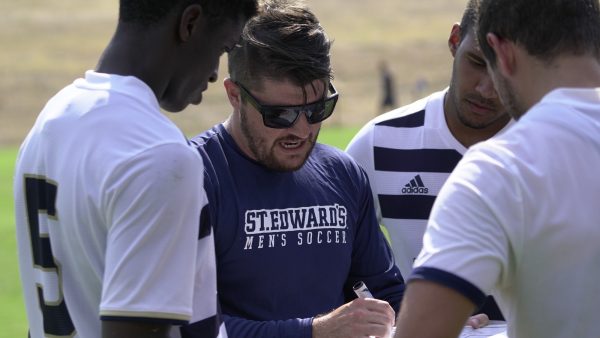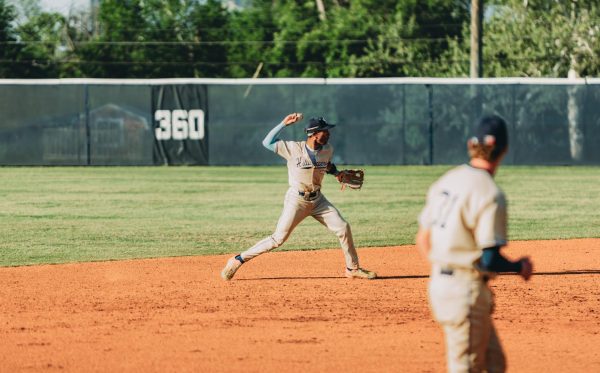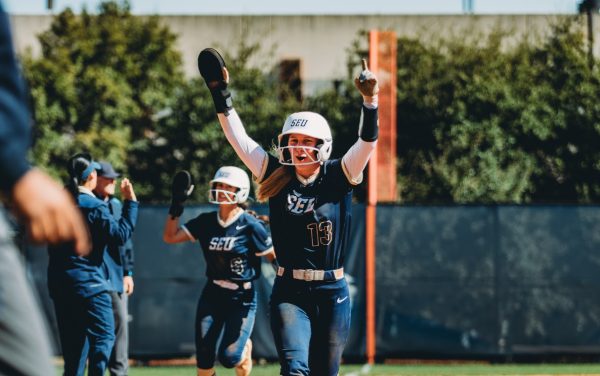Naomi Osaka is taking a break from tennis: How being the best makes you worse
After her loss in the third round of the U.S. Open, tennis superstar Naomi Osaka announced she would be taking a break from the game. At a tearful press conference, she said, “Recently, when I win I don’t feel happy, I feel more like a relief.”
This isn’t the first time Osaka expressed the toll the sport takes on her mental health. Earlier this year, she withdrew from the French Open, and skipped Wimbledon, due to organizers’ insistence on media appearances and the effects on her mental health.
She explained how one has to be mentally strong to compete at her level, yet there is a particular inner strength necessary to defy the sporting ideal, “being the best.” Osaka’s vulnerability at the press conference is an example of her resistance to the norm and just trying to better herself.
This is not the first time athletes have struggled to enjoy the games they have devoted their lives to, especially in individual sports like tennis. Mardy Fish, a former American tennis player, also pulled out of the 2012 U.S. Open due to anxiety attacks. American gymnast, Simone Biles, withdrew from multiple Olympic events in Tokyo because she didn’t trust herself to compete.
What makes these athletes, often at the top of their game, forsake the sports they love? Well, even they can’t seem to put their finger on it. During Osaka’s press conference, she described her feelings as, “very hard to articulate.”
However, her self-titled Netflix documentary, “Naomi Osaka”, offers some insight and clarity on the pressures of global stardom. Throughout the three episodes, Osaka details the isolation, imposter syndrome and self-doubt felt as a top-ranked tennis player. Most of a player’s career is spent alone, whether at the baseline of the court or in front of a room of reporters. When you reach the top and there is nowhere else to go, your job then becomes to maintain your position.
Its harshness makes it that much more impressive when you see the likes of Serena Williams and Roger Federer’s long and illustrious careers.
Early in the docuseries, Osaka states how in order to play tennis, “you have to be really strong mentally.”. In order to reach the top, it takes someone who is able to deal with failure, persevere, and continuously seek perfection. The only concern is that achieving perfection is impossible, especially in sports. Michael Jordan cannot make every basket, Tom Brady cannot always complete a pass, and Osaka cannot always serve an ace. This “strive for perfection” mentality is unrealistic and often comes at the detriment of the athlete’s health.
Osaka has played tennis since she was three years old and since then has stood at the baseline alone. As her stardom has risen, so has her exile from “normal life.” By this, I mean a life where the world is not hanging on every word she says or thing she posts; a world that does not expect perfection.







Will Mallory • Oct 1, 2021 at 1:21 pm
This was well done and interesting thinking about the modern pressures on athletes. I admire both the author and the athletes included in this article.
Angela Wolfe • Sep 17, 2021 at 6:10 pm
Well written with an insight into the young athlete.
Patty Mack • Sep 17, 2021 at 5:51 pm
This is the best article I have ever seen.
Cheers those who don’t strive for perfection.
Gotta take care of the self, your mind is a temple.